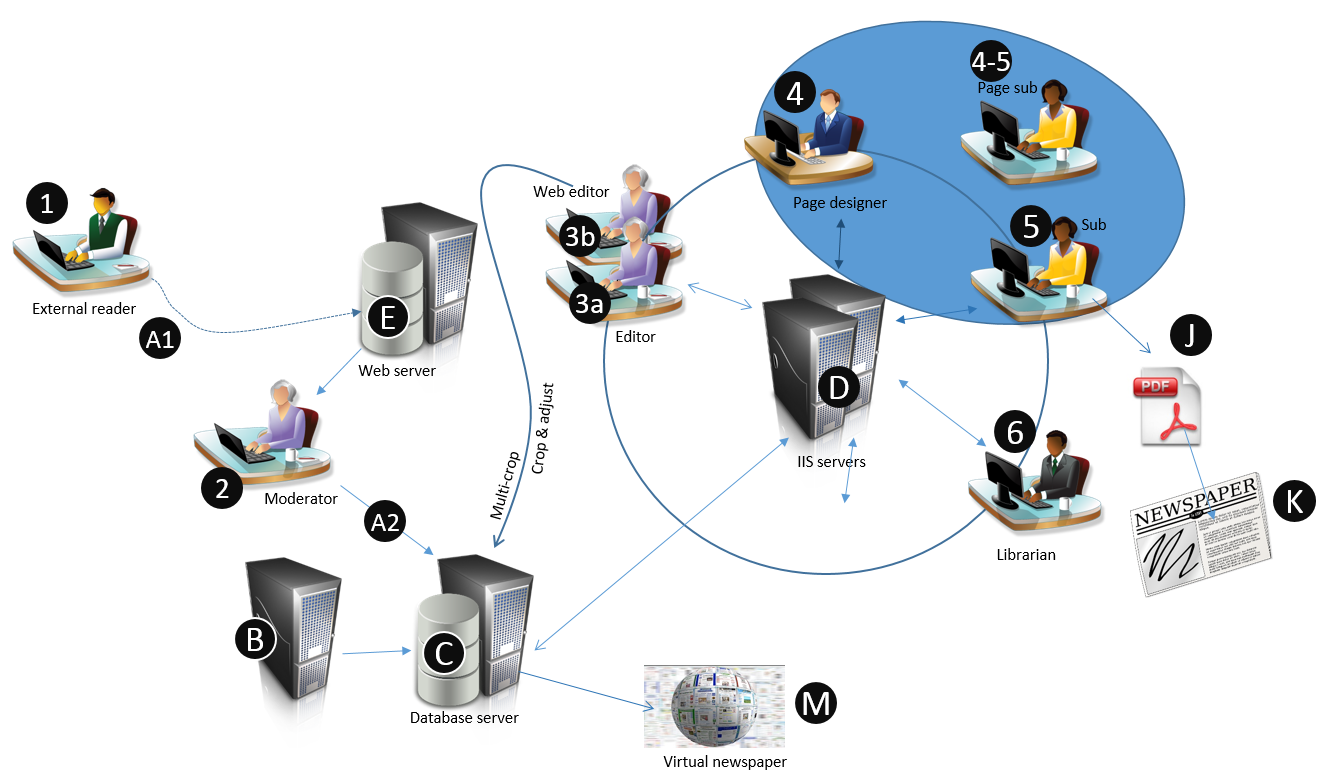UGC workflow
This topic describes a typical workflow of user generated content from ingestion till publishing and archiving.

External reader (1) generates the content e.g. text, image, video, audio and uploads it (A1) through an app on the Web site to the Web server (E).
Moderator (2) revises the content, and it it is considered suitable, stores it (A2) on the database server, typically in a wires-like folder named UGC.
Editor (3a) edits the content and optionally enriches it by adding a title, rewrites the captions etc, performs fact checking and spell checking, and picture cropping.
In some newspapers, editors (some or all) create also the Web & channels related content, by adding to the article the channel-related elements (webhead, webbody)and so on, previewing article for Web, and scheduling it for publishing, or publishing it directly on Web and creating variants for Web, through multi-crop. In other newsroom, this task is assigned to another role, named Web editor (3b).
In any case, the IIS server (D) sends the channel-related content to the Web server (E) that generates a Web page.
When done, the editor (3a) sends the article in the folder which is dedicated for the content ready to be laid out on page.
Page designer (4) lays out the article, linking it to the page. When the page designer saves the page, the geometry and formatting is added to the article, so a fit text to shape can be performed by someone, either by an editor (3) or by a sub (5) who edits to fit, writes and adjusts the headline and performs the final check of article.
Note: In some newspapers, the roles of page designers and subs are merged and such role is called a page sub (4-5): in that case, a page designer role (4) does not exist at all, but all the job is performed by the page sub: designing shapes and linking article, assigning formats, adjusting images, editing to fit and so on.
Page sub (4-5) also sends pages to press, in the PDF format, so they become a "newspaper".
The page, containing wire images enclosed in articles and other content, together with other pages in the edition, gets archived, and eventually processed by librarians (6) that enrich the content.
Sometimes later, a scheduled process on the database server, automatically creates a virtual edition of the newspaper (M), and makes it available to subscribers over Web.
The items involved on the Back4 server:
•Back4 queues
•Data source templates with workflows
•Logging of activities
•Images conversion post-processing
The items involved on the Database server:
•Storage
•Searches
•Generating of thumbnails and previews
•Export of edition to the virtual newspaper
•Purging of old wire images
•Creating of picture variants
The items involved on the Web server:
•Web export with workflows through publishing destinations
•Web templates
•Web comments
